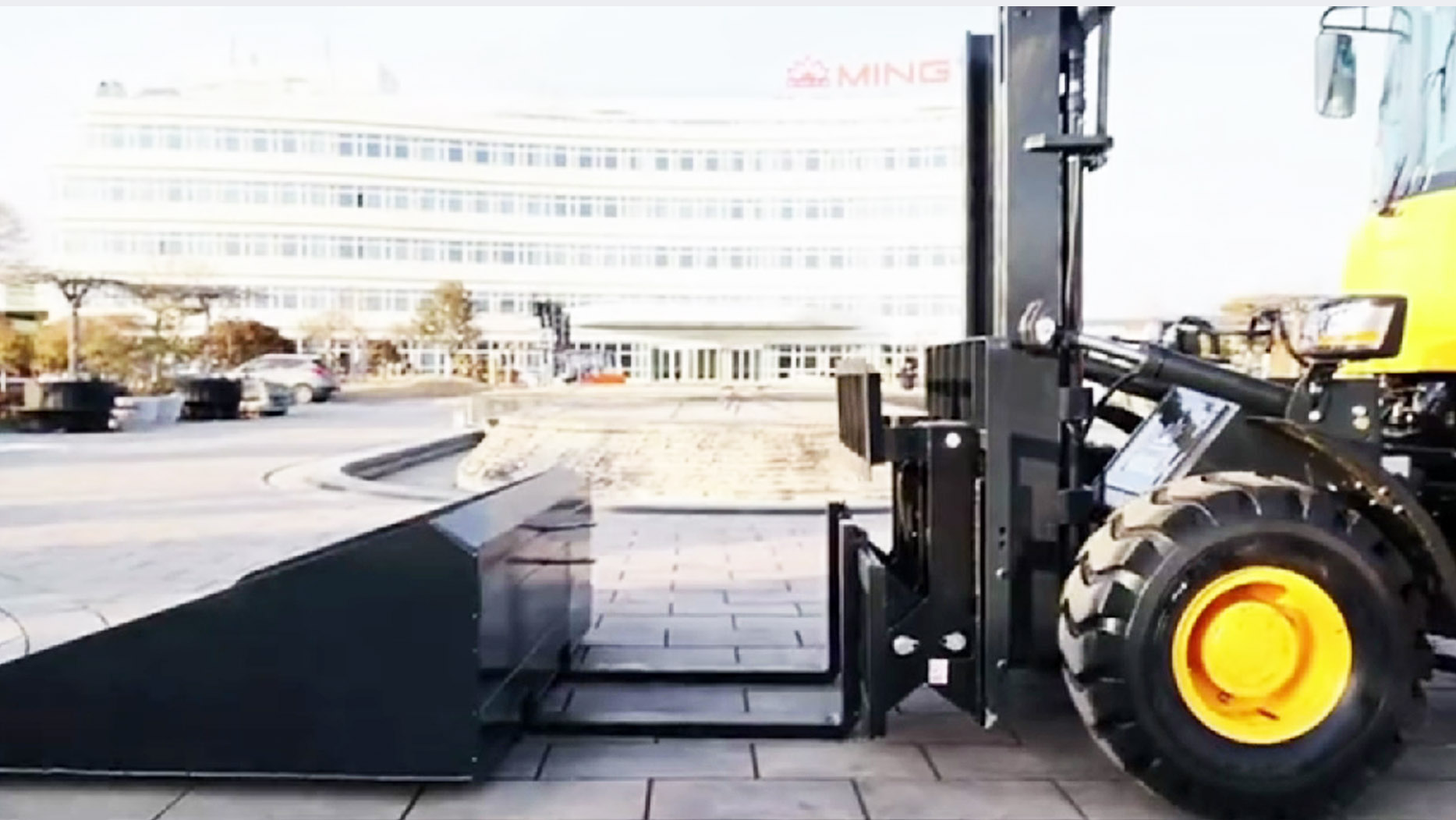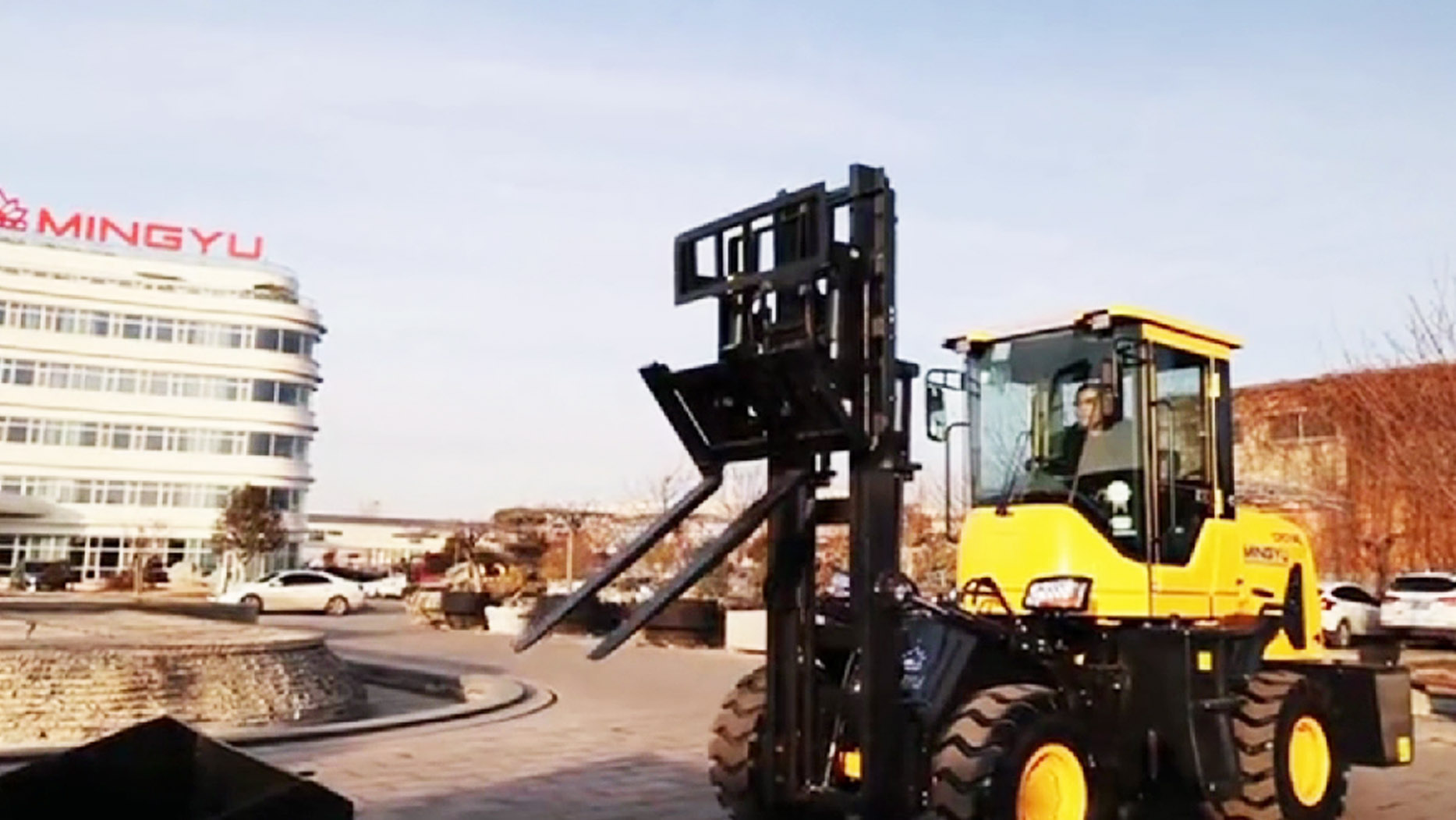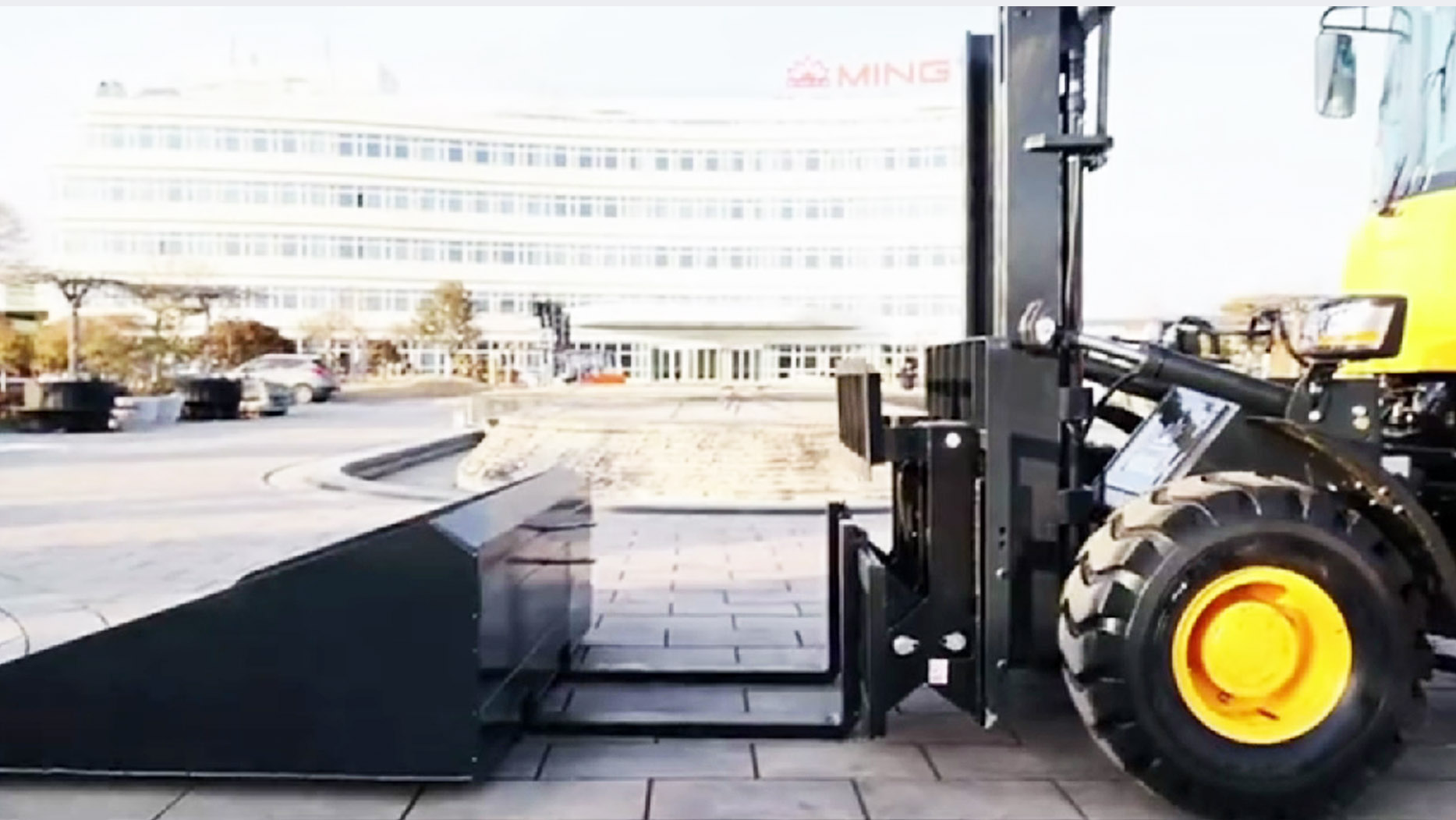When the jobsite extends beyond the smooth concrete floors of a warehouse, the need for robust and adaptable material handling equipment becomes paramount. This is where rough terrain forklifts step in, engineered to navigate uneven, muddy, and often challenging landscapes with ease. But who are the masterminds behind these rugged machines? This technical article will delve into the key manufacturers of rough terrain forklifts, exploring their history, product lines, and the unique features that make their equipment stand out in this specialized sector.
A Global Landscape of Rugged Innovation:
The market for rough terrain forklifts is populated by a mix of global giants in material handling and more specialized manufacturers focusing on niche applications. These companies understand the demanding conditions their machines face and engineer them accordingly, prioritizing durability, traction, power, and operator comfort in challenging environments.
Here are some of the leading and notable manufacturers of rough terrain forklifts:
1. Manitou: Often credited with inventing the rough terrain forklift in 1958, Manitou stands as a pioneer and a major global player in this segment. Headquartered in France, Manitou offers a comprehensive range of all-terrain forklifts under their M and MC series (sometimes denoted as M-X and MC-X in certain regions). These forklifts are known for their exceptional off-road capabilities, high ground clearance, oscillating rear axles, and robust masts fixed directly to the chassis. Manitou emphasizes versatility, offering a wide array of attachments to adapt their forklifts for various tasks in construction, agriculture, and industry.
2. JCB: The iconic British manufacturer, known for its yellow and black machinery, also produces a robust line of rough terrain forklifts (RTFLs). JCB's RTFL range includes models like the 930 and 940, powered by their efficient EcoMax engines. These machines are designed for reliability, versatility, and ease of use, featuring innovative transmission systems for fast directional changes and excellent traction. JCB focuses on operator comfort and productivity, building durable and ergonomic machines for demanding environments.
3. Hyster-Yale Group (Hyster and Yale): This North American powerhouse encompasses two well-respected brands in the forklift industry: Hyster and Yale. Both brands offer a range of rough terrain forklifts designed for moving materials on irregular terrain. Hyster's RTFLs are known for their heavy-duty construction and ability to handle varied irregularities, making them suitable for sites with less infrastructure and challenging weather conditions. Yale's offerings also cater to outdoor and uneven ground applications, emphasizing reliability and operator comfort.

4. Toyota Material Handling: As the world's largest forklift manufacturer, Toyota also produces a line of all-terrain forklifts. While renowned for their indoor electric and IC engine forklifts, Toyota's rough terrain models uphold the brand's reputation for safety, comfort, and reliability in outdoor applications. Their larger IC pneumatic tire forklifts are popular on construction sites, lumberyards, and agricultural centers, capable of operating on gravel, dirt, and asphalt.
5. Komatsu: The Japanese heavy equipment giant is also a significant player in the rough terrain forklift market. Komatsu forklifts are known for their high engineering specifications, ergonomic comfort, enhanced visibility, and noise and vibration control. Their rough terrain FH-2 Tier 4 Final Diesel series offers various lifting capacities and is designed for demanding outdoor applications.
6. Caterpillar (CAT Lift Trucks): Leveraging their extensive experience in heavy construction equipment, Caterpillar offers a range of durable forklifts under the CAT Lift Trucks brand, including models designed for rough terrain. These forklifts are built to be rugged and reliable, aligning with Caterpillar's strong reputation in the heavy equipment sector. Their Tier 4 Final diesel rough terrain forklifts focus on reduced emissions and fuel efficiency while providing powerful performance.
7. Sellick Equipment: Based in Canada, Sellick Equipment specializes in rough terrain forklifts. With over 55 years in the business, Sellick has built a reputation for producing robust and dependable machines for challenging environments. They offer various series, including the S Series known for comfort and safety, and low-profile models for tight spaces. Sellick emphasizes customer satisfaction and offers tailored solutions and strong parts support.
8. AUSA: Spanish manufacturer AUSA specializes in compact all-terrain industrial vehicles, including a range of rough terrain forklifts. Their 4WD forklift range is designed to be tough and advanced, offering various load capacities and lift heights suitable for construction, agriculture, and other demanding outdoor applications.
9. Load-Lifter: This North American manufacturer focuses specifically on rough terrain forklifts for industries such as construction, mining, agriculture, lumber, and forestry. Load-Lifter designs and manufactures robust machines built to withstand the most challenging environments, emphasizing durability and reliability.
10. CASE Construction Equipment: While primarily known for their construction machinery like loaders and backhoes, CASE also offers a line of H Series rough terrain forklifts. Built on the same chassis as their loaders and backhoes, CASE RTFLs are designed to be true weightlifters, capable of handling heavy crated or palletized materials on uneven ground, making them suitable for farms and landscape supply yards.
 Other Notable Manufacturers:
Beyond these major players, other manufacturers also produce rough terrain forklifts for specific markets or niche applications. These include:
Hangcha Group: A large Chinese manufacturer offering a range of IC and electric forklifts, including rough terrain models.
Anhui Heli (HELI): Another prominent Chinese forklift manufacturer with a diverse product line including rough terrain options.
Doosan Industrial Vehicle: Offers a range of forklifts, including some models suitable for rougher terrain.
Hyundai Material Handling: Produces a variety of forklifts, with some models designed for outdoor and uneven surface operation.
Combilift: While known for their multi-directional forklifts, Combilift also offers some models with rough terrain capabilities.
Terex (discontinued forklift line, but used models exist): Previously a manufacturer of rough terrain forklifts, particularly telescopic handlers which often have rough terrain capabilities.
Key Features and Design Considerations for Rough Terrain Forklifts:
Manufacturers of rough terrain forklifts focus on incorporating specific features to ensure optimal performance and safety in challenging conditions:
Robust Chassis and Mast Construction: Built to withstand the stresses of uneven ground and heavy loads.
Large Diameter Pneumatic Tires with Deep Treads: Provide superior traction on loose surfaces and better shock absorption. Foam-filled or solid tires may be offered for puncture resistance.
High Ground Clearance: Prevents damage to the undercarriage from obstacles and allows for traversing uneven terrain.
Powerful Diesel or Gasoline Engines: Deliver high torque necessary for navigating tough conditions and handling heavy loads.
Four-Wheel Drive (4WD) with Differential Locks: Maximizes traction and power distribution on slippery or inclined surfaces. Two-wheel drive (2WD) options may also be available.
Oscillating Axles: Allow the wheels to maintain contact with the ground even on uneven surfaces, enhancing stability and traction.
Enhanced Stability Systems: Wider wheelbases, lower centers of gravity, and sometimes outriggers contribute to increased stability. Load sensing and stability control technologies are becoming more common.
Durable Hydraulic Systems: Designed to handle the demands of heavy lifting and operation in challenging environments.
Operator Comfort and Safety Features: ROPS/FOPS structures, comfortable seating, good visibility, and intuitive controls are crucial for operator well-being and productivity.
The Importance of Specialization:
Other Notable Manufacturers:
Beyond these major players, other manufacturers also produce rough terrain forklifts for specific markets or niche applications. These include:
Hangcha Group: A large Chinese manufacturer offering a range of IC and electric forklifts, including rough terrain models.
Anhui Heli (HELI): Another prominent Chinese forklift manufacturer with a diverse product line including rough terrain options.
Doosan Industrial Vehicle: Offers a range of forklifts, including some models suitable for rougher terrain.
Hyundai Material Handling: Produces a variety of forklifts, with some models designed for outdoor and uneven surface operation.
Combilift: While known for their multi-directional forklifts, Combilift also offers some models with rough terrain capabilities.
Terex (discontinued forklift line, but used models exist): Previously a manufacturer of rough terrain forklifts, particularly telescopic handlers which often have rough terrain capabilities.
Key Features and Design Considerations for Rough Terrain Forklifts:
Manufacturers of rough terrain forklifts focus on incorporating specific features to ensure optimal performance and safety in challenging conditions:
Robust Chassis and Mast Construction: Built to withstand the stresses of uneven ground and heavy loads.
Large Diameter Pneumatic Tires with Deep Treads: Provide superior traction on loose surfaces and better shock absorption. Foam-filled or solid tires may be offered for puncture resistance.
High Ground Clearance: Prevents damage to the undercarriage from obstacles and allows for traversing uneven terrain.
Powerful Diesel or Gasoline Engines: Deliver high torque necessary for navigating tough conditions and handling heavy loads.
Four-Wheel Drive (4WD) with Differential Locks: Maximizes traction and power distribution on slippery or inclined surfaces. Two-wheel drive (2WD) options may also be available.
Oscillating Axles: Allow the wheels to maintain contact with the ground even on uneven surfaces, enhancing stability and traction.
Enhanced Stability Systems: Wider wheelbases, lower centers of gravity, and sometimes outriggers contribute to increased stability. Load sensing and stability control technologies are becoming more common.
Durable Hydraulic Systems: Designed to handle the demands of heavy lifting and operation in challenging environments.
Operator Comfort and Safety Features: ROPS/FOPS structures, comfortable seating, good visibility, and intuitive controls are crucial for operator well-being and productivity.
The Importance of Specialization:
 Other Notable Manufacturers:
Other Notable Manufacturers:
Beyond these major players, other manufacturers also produce rough terrain forklifts for specific markets or niche applications. These include:
Hangcha Group: A large Chinese manufacturer offering a range of IC and electric forklifts, including rough terrain models.
Anhui Heli (HELI): Another prominent Chinese forklift manufacturer with a diverse product line including rough terrain options.
Doosan Industrial Vehicle: Offers a range of forklifts, including some models suitable for rougher terrain.
Hyundai Material Handling: Produces a variety of forklifts, with some models designed for outdoor and uneven surface operation.
Combilift: While known for their multi-directional forklifts, Combilift also offers some models with rough terrain capabilities.
Terex (discontinued forklift line, but used models exist): Previously a manufacturer of rough terrain forklifts, particularly telescopic handlers which often have rough terrain capabilities.
Key Features and Design Considerations for Rough Terrain Forklifts:
Manufacturers of rough terrain forklifts focus on incorporating specific features to ensure optimal performance and safety in challenging conditions:
Robust Chassis and Mast Construction: Built to withstand the stresses of uneven ground and heavy loads.
Large Diameter Pneumatic Tires with Deep Treads: Provide superior traction on loose surfaces and better shock absorption. Foam-filled or solid tires may be offered for puncture resistance.
High Ground Clearance: Prevents damage to the undercarriage from obstacles and allows for traversing uneven terrain.
Powerful Diesel or Gasoline Engines: Deliver high torque necessary for navigating tough conditions and handling heavy loads.
Four-Wheel Drive (4WD) with Differential Locks: Maximizes traction and power distribution on slippery or inclined surfaces. Two-wheel drive (2WD) options may also be available.
Oscillating Axles: Allow the wheels to maintain contact with the ground even on uneven surfaces, enhancing stability and traction.
Enhanced Stability Systems: Wider wheelbases, lower centers of gravity, and sometimes outriggers contribute to increased stability. Load sensing and stability control technologies are becoming more common.
Durable Hydraulic Systems: Designed to handle the demands of heavy lifting and operation in challenging environments.
Operator Comfort and Safety Features: ROPS/FOPS structures, comfortable seating, good visibility, and intuitive controls are crucial for operator well-being and productivity.
The Importance of Specialization:
While some major forklift manufacturers offer rough terrain models as part of their broader product line, specialized manufacturers often bring decades of focused expertise to this niche. They understand the specific demands of industries like construction, agriculture, and forestry and engineer their machines accordingly, often leading to highly robust and capable equipment tailored for these challenging applications.
Conclusion: A World of Tough Material Handlers:
The world of rough terrain forklifts is populated by a diverse group of manufacturers, each bringing their unique engineering expertise and design philosophies to the table. From global giants with broad product portfolios to specialized companies focused solely on conquering challenging terrain, these manufacturers provide the essential tools for material handling in environments where standard forklifts simply cannot tread. When selecting a rough terrain forklift, understanding the strengths and specializations of these various manufacturers is crucial for finding the machine that best fits the specific demands of the job site and ensures efficient and safe operation, no matter how uneven the ground may be.
Post time:May.16.2025
